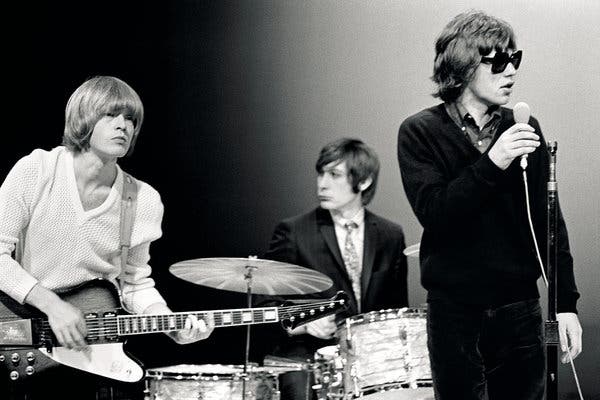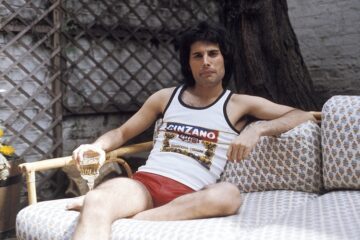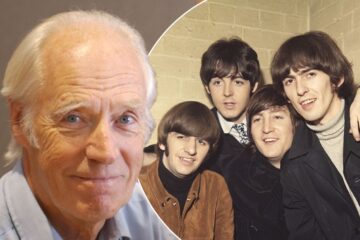After forming in 1962, The Rolling Stones established themselves in the London R&B circuit, bringing their passion for American artists like Muddy Waters, Bo Diddley and Chuck Berry to a British audience. Initially, the Cheltenham-born blues fanatic Brian Jones, who named the group after Muddy Waters’ 1950 song ‘Rollin’ Stone’, sat at the reins. His goal was to take his beloved blues to the top of the UK charts, one the band would achieve and surpass with distinction.
In the band’s first couple of years, Mick Jagger and Keith Richards’ songwriting capabilities were still embryonic; consequently, they mostly opted for blues covers under Jones’ direction. With a string of early hit cover singles, the band rose to fame alongside The Beatles and other prominent acts of the so-called British Invasion wave.
Through the mid-1960s, the Stones became a fully-fledged pop group, unsheathing themselves of R&B covers and embracing the songwriting talents of Jagger and Richards. Jones, who was averse to contemporary pop, began to grow distant and indulged himself in harmful vices as he faced fame’s double-edged sword.
After several arrests and ongoing disputes with the rest of the band, Jones was fired in 1968. As Richards later recalled: “The fact that he was expecting it made it easier, you know, he wasn’t even surprised, and I didn’t really think he took it all in. He was already … up in the stratosphere.”
Richards was, of course, referring to Jones’ worsening relationship with drugs. He would frequently miss rehearsals or recording meetings with the band, and if he did turn up, he wouldn’t engage.
The Stones’ drummer Charlie Watts once recalled of Jones: “I think he liked drinking, I think he liked drugs. But they weren’t very good for him. I don’t think they’re good for anyone, but he wasn’t strong enough mentally or physically to take any of it. Brian was one of those people who did everything to excess.”
In a 2003 interview, while on tour for BBC’s Top of the Pops, Watts added that Jones “was two things: he was not very nice, and he upset people very easily. He wasn’t very pleasant.”
However, it appears that Jones became more amiable in the closing years of his life when he became less engaged in his music career. “He got much nicer just before he died, the last few years of his life,” Watts recalled. “I felt even more sorry for him for what we did to him then. We took his one thing away, which was being in a band … that’s my opinion.”
Just before he died in 1969, Jones had become somewhat reclusive, retreating to Cotchford Farm, his East Sussex residence formerly owned by Winnie the Pooh creator A.A. Milne. Despite his apparent withdrawal from the limelight, archival evidence reveals Jones was pursuing the next big step in his musical career approaching the 1970s.
In his last ever interview, conducted by the German magazine Bravo, Jones was told that his fans would miss him during the Stones’ next tour. “You think so? Tell them I’ll have my own group soon. The decision is within the next few weeks. Maybe I’ll only produce music. I know one thing for sure: I want to be rich and rake in the big bucks.”
Jones allegedly connected John Lennon, Mitch Mitchell, Alan Price and Jimmy Miller in the late 1960s in hopes of forming a new supergroup, although this was never confirmed. However, the British blues musician Alexis Korner revealed that he once visited Cotchford Farm to speak to Jones about forming a new band. In an early 1970s interview, the musician revealed that he declined Jones’ offer but agreed to be his rehearsal director and help him get his career back on the road.
Another musician Jones approached for his new band was drummer Mickey Waller, who had played with several bands, including The Jeff Beck Group. Speaking to Melody Maker in 1970, Waller said: “I was going to be in Brian Jones’ new band when he left the Stones. We were going to start a sort of Creedence Clearwater thing.”
In his 2002 autobiography, 2Stoned, The Rolling Stones’ pivotal early career manager and producer Andrew Loog Oldham reflected on Jones’ final months, discussing his renewed musical impetus. “Brian had seemed to handle his break from the Stones in a remarkably sober and practical manner, at least on the surface, and I had admired this newfound aplomb from my distance,” he wrote. “I hoped that the surface had some substance and that Brian intended to use the split for positive change and not abuse himself or others any further. Certainly, he did choose wise counsel with whom to discuss his future, the caring blues guitarist Alexis Korner.”
“He was supposed to have been positively feeling out forming a new band, fascinated with using as his example and role model the American-based pop ‘n’ blues band Creedence Clearwater Revival, John Fogerty’s West Coast combo, who’d hit big that summer of 69 with ‘Proud Mary’ sand ‘Bad Moon Rising’ and who seemed to have struck the right balance between their musical integrity and the selling of it,” Oldham added. “It was quite easy to understand Brian’s finding inspiration in CCR, for there were parallels between him and John Fogerty that he could openly connect with and formulate a solid game plan.”
Continuing, the famed manager and former friend of Jones opined that Jones’ new band was set to follow in the encouraging footsteps of “Creedence Clearwater Revival,” a band he saw as a “good model, both in reality of Brian’s fame and his situation (i.e. his standard of living and breathing needs).”
Oldham seemed to have high hopes for Jones’ return, explaining that his intrinsically alluring presence and dedicated fanbase could counter any call for an energetic Jagger-type frontman. “Brian could adopt the frontman persona, without competition from a lead singer’s dapper diva danceability, to get back to where he’d felt best and wanted to feel again and do it for the growing festivalistic audience who thought of him as a hero and icon,” Oldham wrote. “Brian could have felt he was entitled to find his voice, the one I’d buried in 63 on ‘Walkin’ The Dog’, and, further, was entitled to write his own music and dismiss my opinion that you can’t write down to the public – well, not knowingly anyway.”
Sadly, fate had other plans. “On that warm July 1969 summer evening in Sussex, Brian’s immediate plans were to go swimming,” Oldham lamented. Tragically, Jones drowned in the swimming pool at Cotchford Farm under controversial circumstances on July 3rd, 1969.




